Презентація на тему «The Peak District National Park»

Prepared
Artem Vorotitntsev
The Peak District National Park
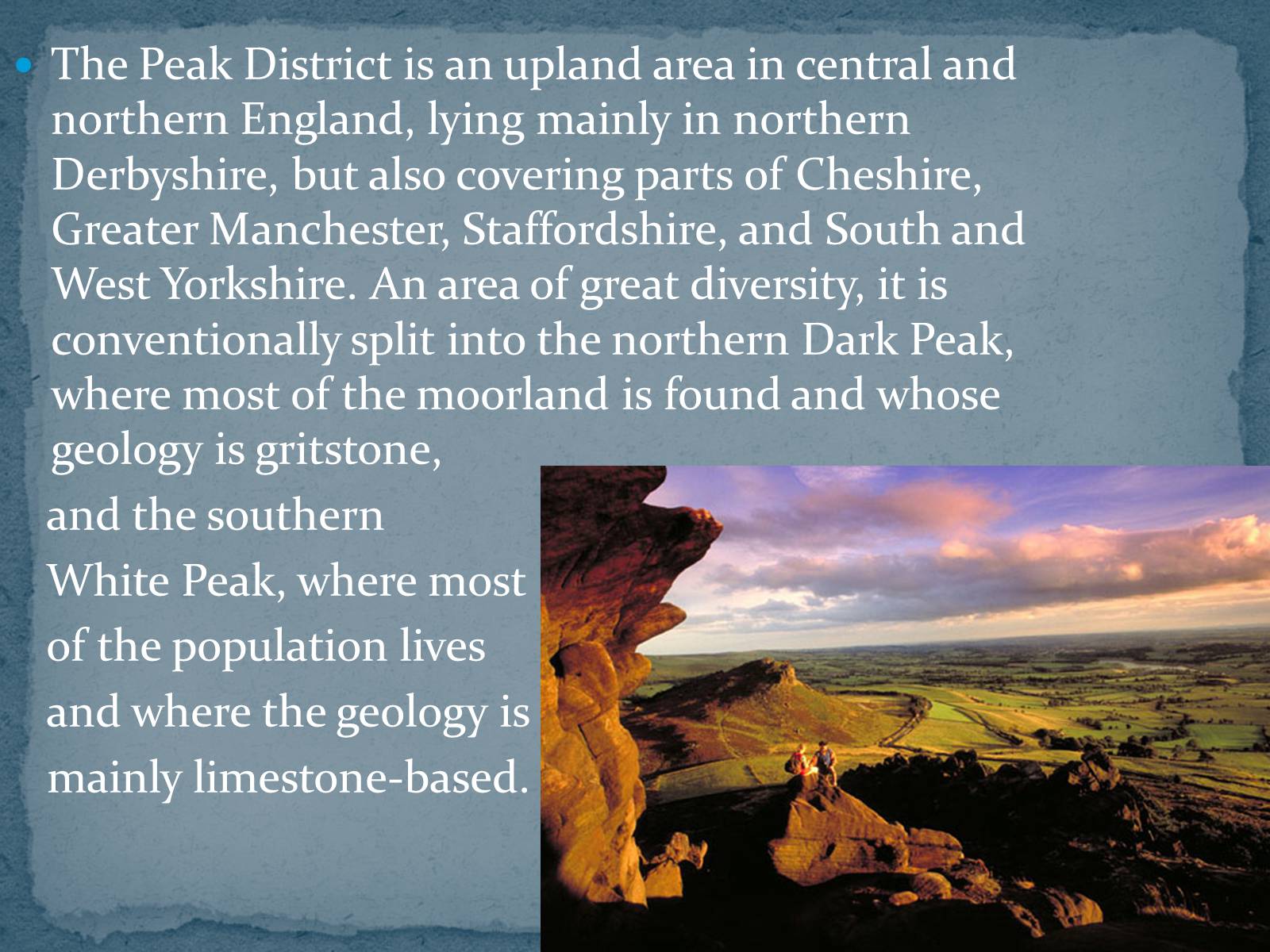
The Peak District is an upland area in central and northern England, lying mainly in northern Derbyshire, but also covering parts of Cheshire, Greater Manchester, Staffordshire, and South and West Yorkshire. An area of great diversity, it is conventionally split into the northern Dark Peak, where most of the moorland is found and whose geology is gritstone,
and the southern
White Peak, where most
of the population lives
and where the geology is
mainly limestone-based.
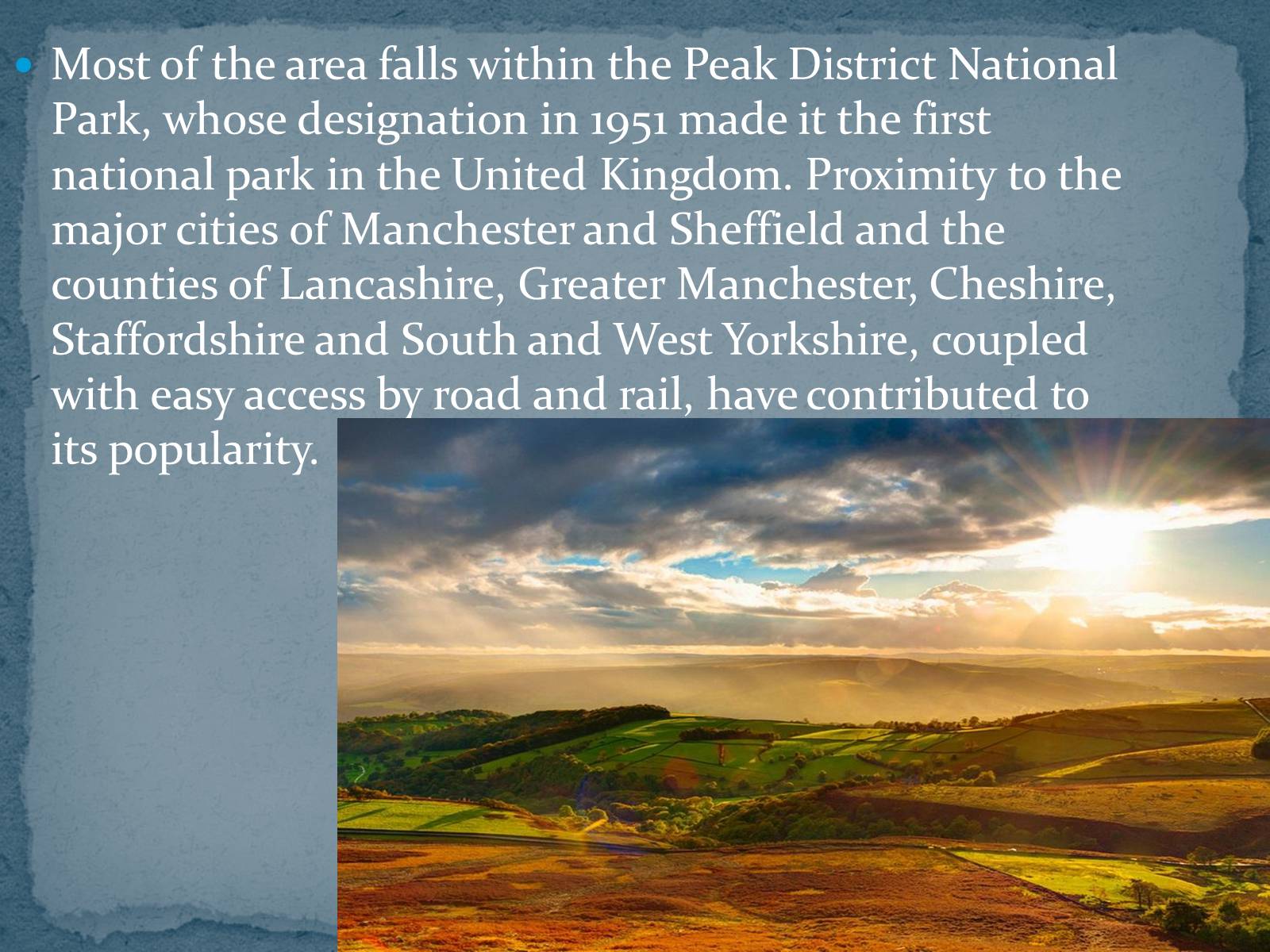
Most of the area falls within the Peak District National Park, whose designation in 1951 made it the first national park in the United Kingdom. Proximity to the major cities of Manchester and Sheffield and the counties of Lancashire, Greater Manchester, Cheshire, Staffordshire and South and West Yorkshire, coupled with easy access by road and rail, have contributed to its popularity.
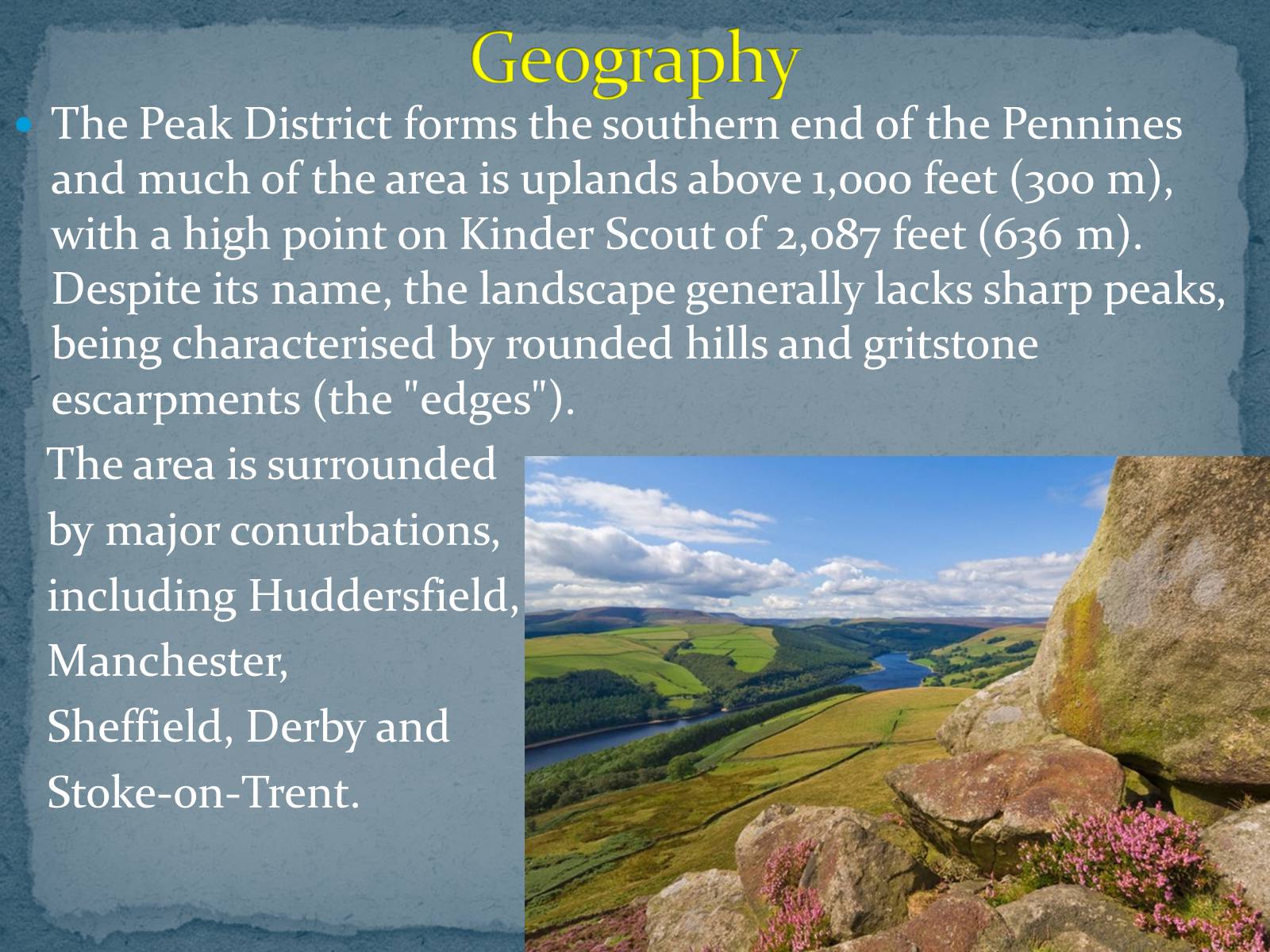
The Peak District forms the southern end of the Pennines and much of the area is uplands above 1,000 feet (300 m), with a high point on Kinder Scout of 2,087 feet (636 m). Despite its name, the landscape generally lacks sharp peaks, being characterised by rounded hills and gritstone escarpments (the "edges").
The area is surrounded
by major conurbations,
including Huddersfield,
Manchester,
Sheffield, Derby and
Stoke-on-Trent.
Geography
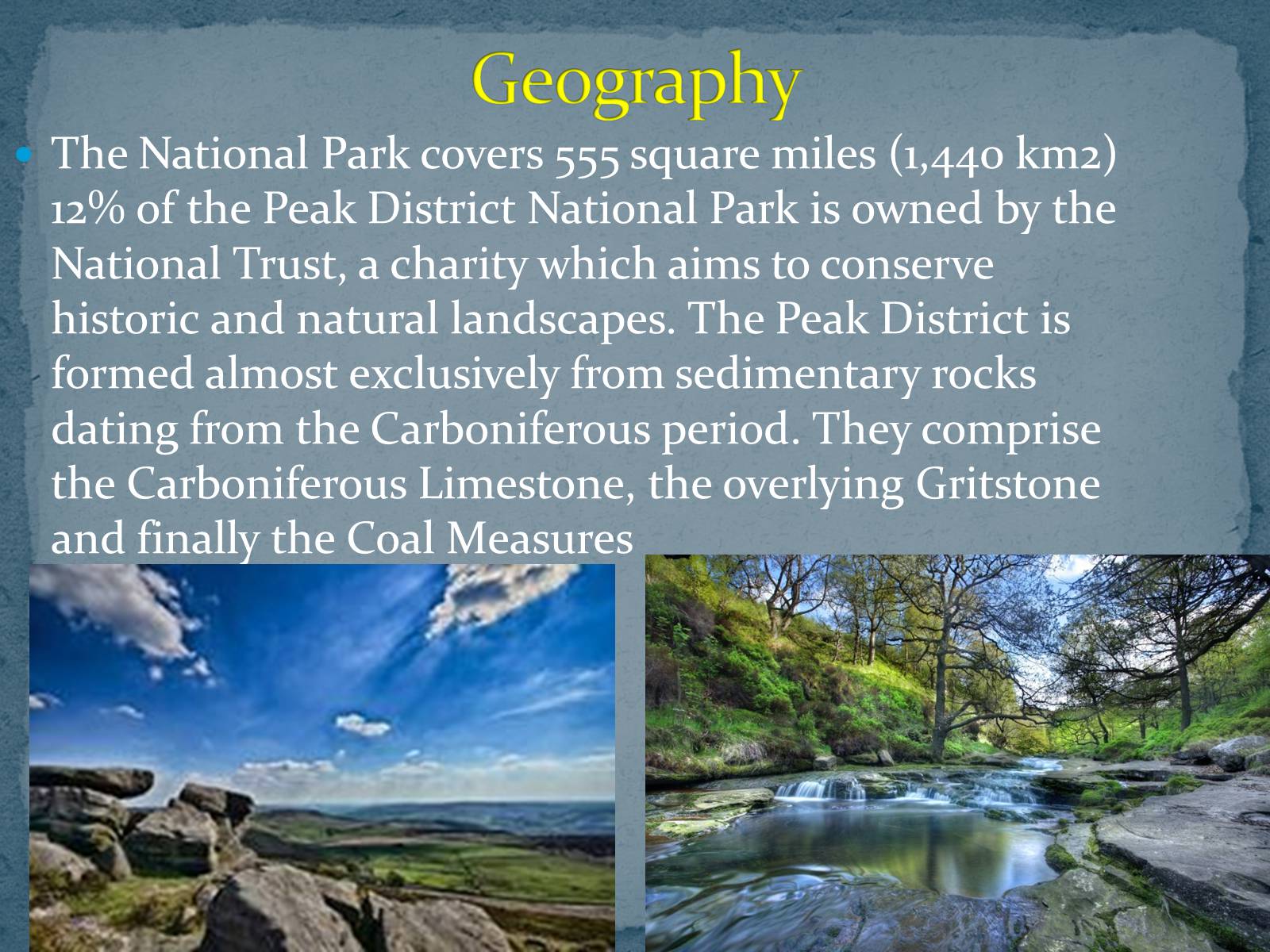
The National Park covers 555 square miles (1,440 km2) 12% of the Peak District National Park is owned by the National Trust, a charity which aims to conserve historic and natural landscapes. The Peak District is formed almost exclusively from sedimentary rocks dating from the Carboniferous period. They comprise the Carboniferous Limestone, the overlying Gritstone and finally the Coal Measures
Geography
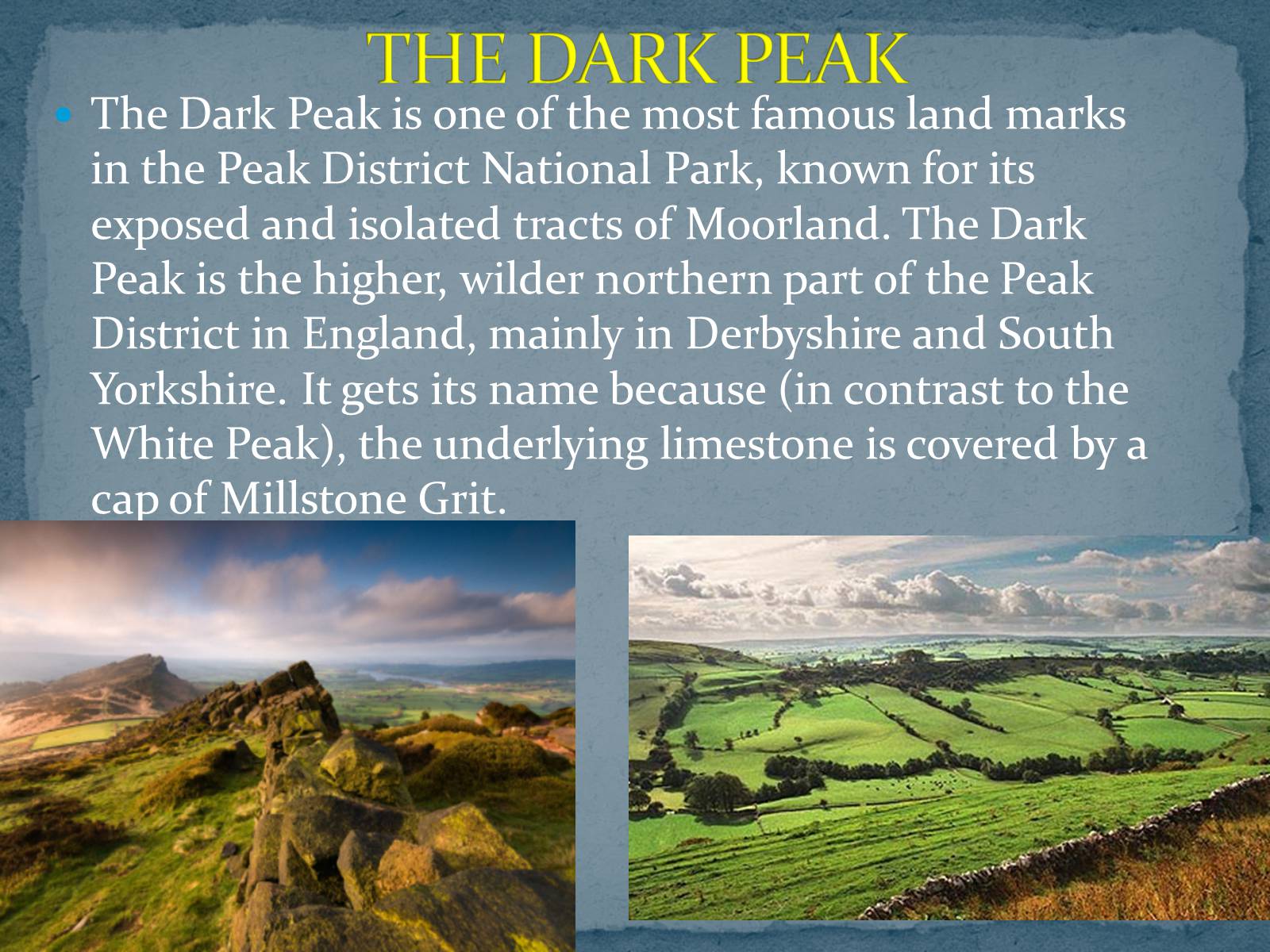
The Dark Peak is one of the most famous land marks in the Peak District National Park, known for its exposed and isolated tracts of Moorland. The Dark Peak is the higher, wilder northern part of the Peak District in England, mainly in Derbyshire and South Yorkshire. It gets its name because (in contrast to the White Peak), the underlying limestone is covered by a cap of Millstone Grit.
THE DARK PEAK
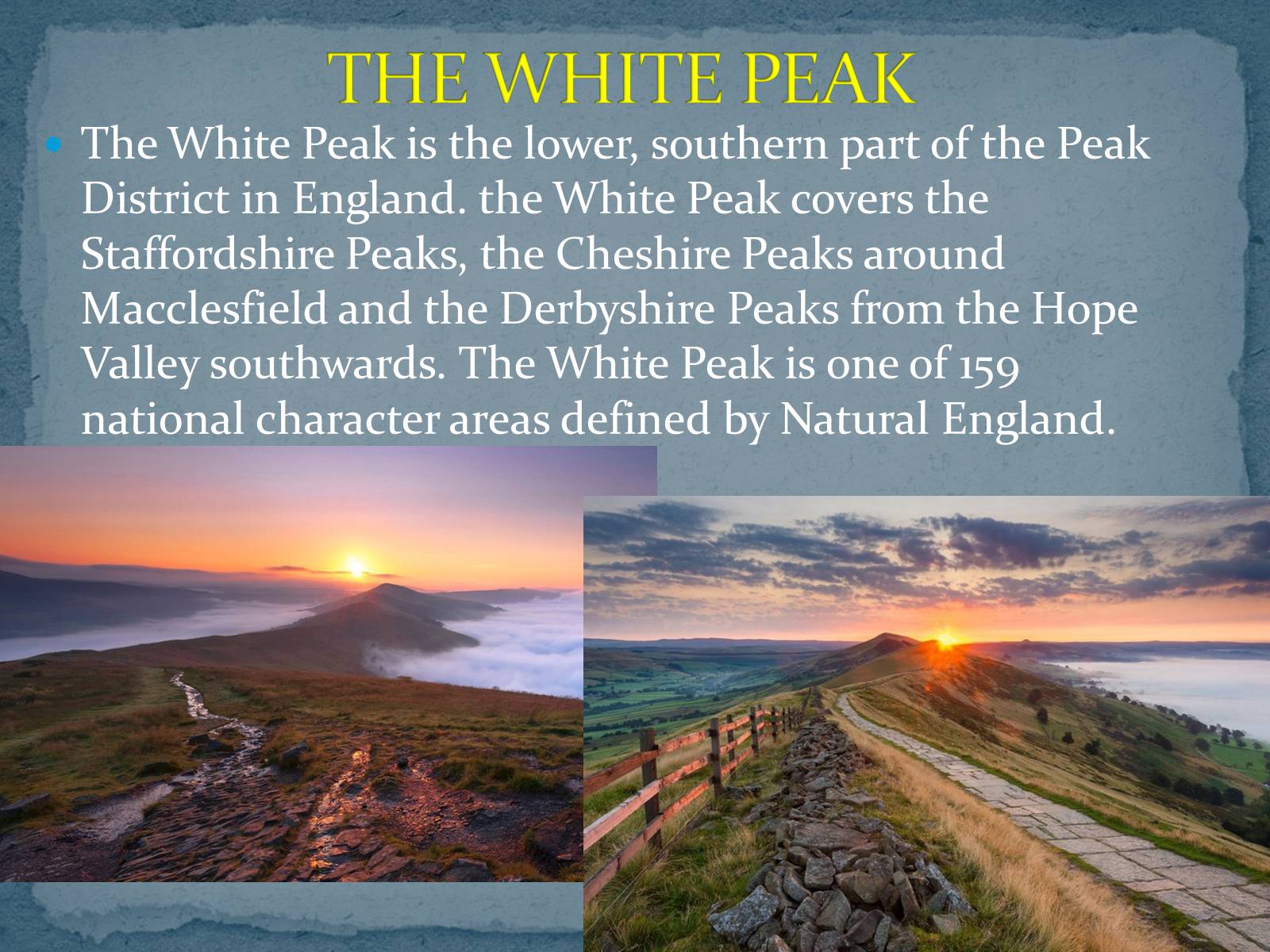
The White Peak is the lower, southern part of the Peak District in England. the White Peak covers the Staffordshire Peaks, the Cheshire Peaks around Macclesfield and the Derbyshire Peaks from the Hope Valley southwards. The White Peak is one of 159 national character areas defined by Natural England.
THE WHITE PEAK
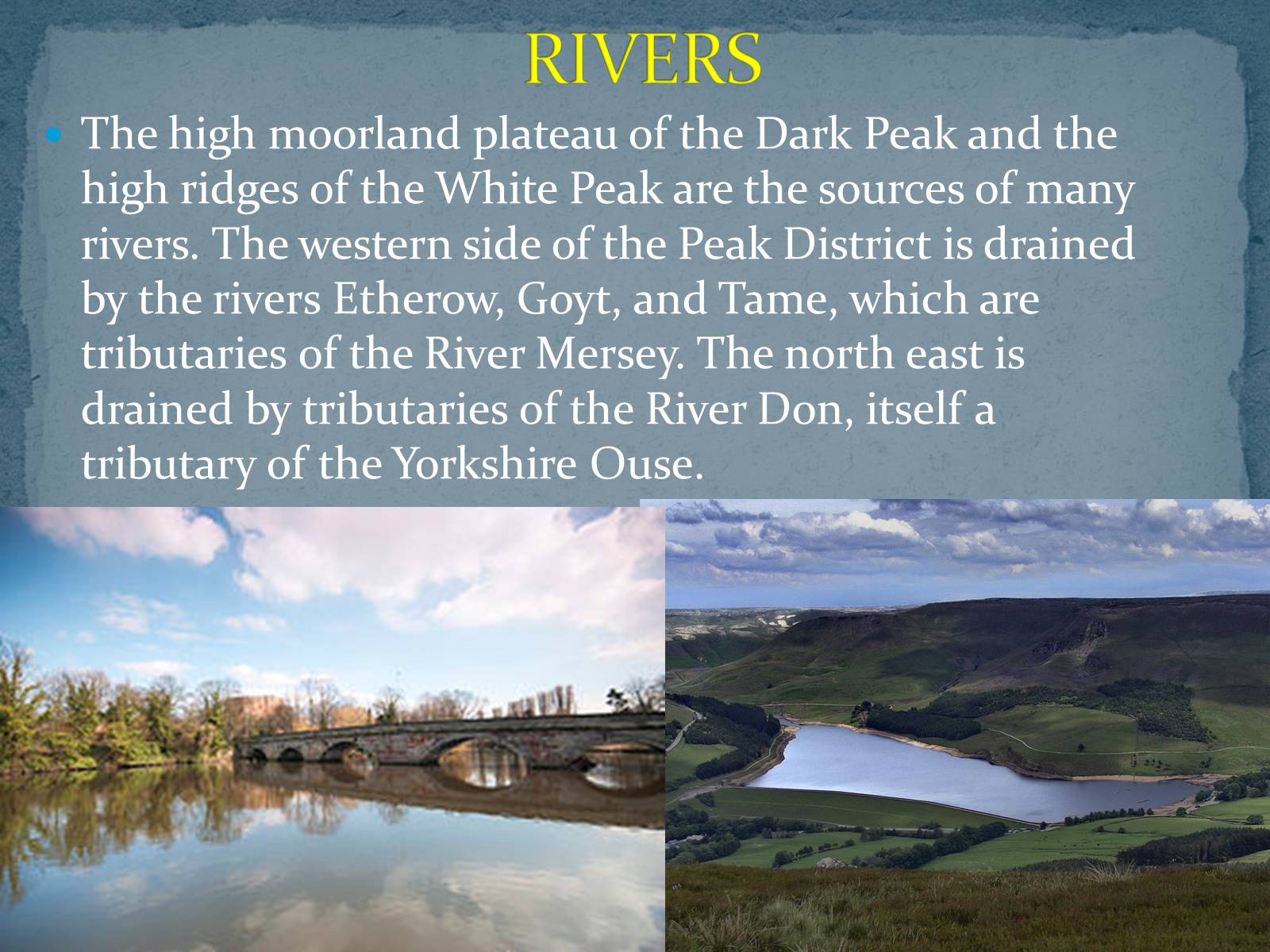
The high moorland plateau of the Dark Peak and the high ridges of the White Peak are the sources of many rivers. The western side of the Peak District is drained by the rivers Etherow, Goyt, and Tame, which are tributaries of the River Mersey. The north east is drained by tributaries of the River Don, itself a tributary of the Yorkshire Ouse.
RIVERS
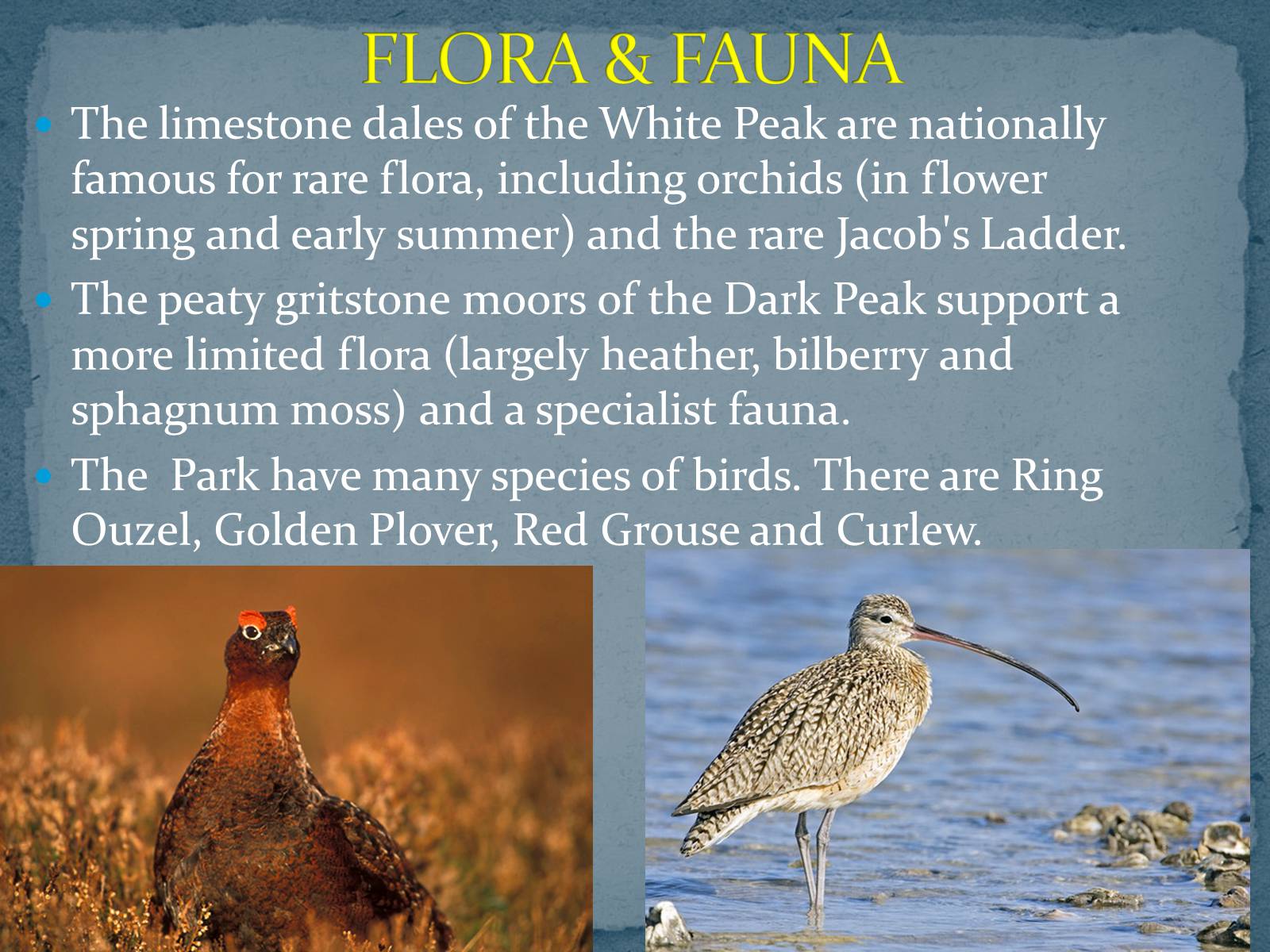
The limestone dales of the White Peak are nationally famous for rare flora, including orchids (in flower spring and early summer) and the rare Jacob's Ladder.
The peaty gritstone moors of the Dark Peak support a more limited flora (largely heather, bilberry and sphagnum moss) and a specialist fauna.
The Park have many species of birds. There are Ring Ouzel, Golden Plover, Red Grouse and Curlew.
FLORA & FAUNA
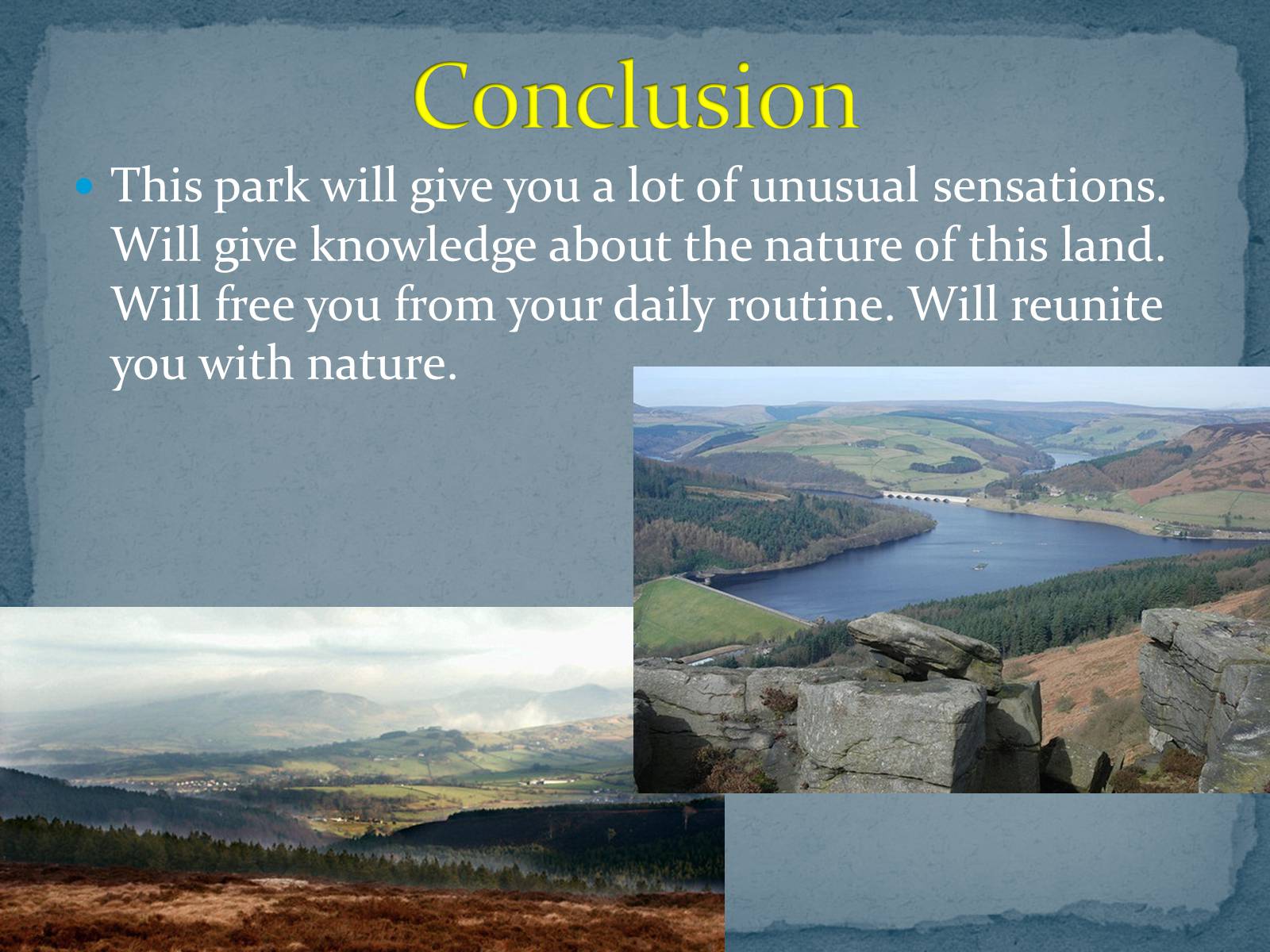
This park will give you a lot of unusual sensations. Will give knowledge about the nature of this land. Will free you from your daily routine. Will reunite you with nature.
Conclusion

THANK YOU FOR ATTENTION!!!